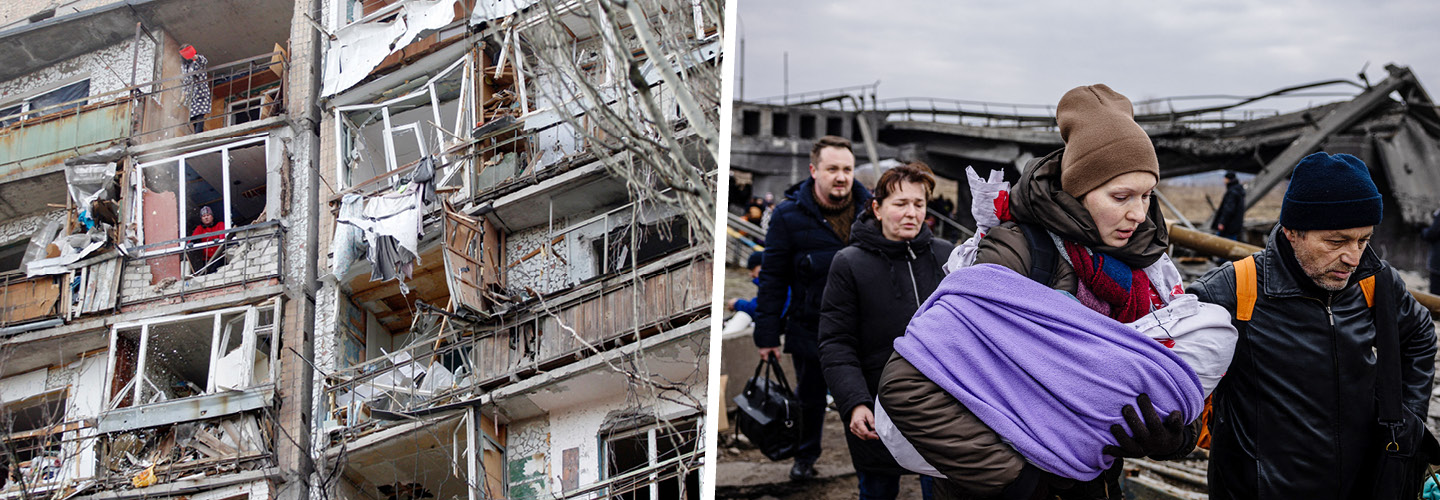Until a couple of weeks ago, 21-year-old Hlib Bondarenko was working in Ukraine as a computer programmer. But when Russian forces invaded his country on February 24, his world changed overnight. Like hundreds of thousands of other Ukrainians, Bondarenko joined the military to help defend his country.
“I wouldn’t really want to participate in anything like this, but I don’t really have any choice because this is my home,” he explained as he waited in line for a weapon with other volunteers eager to defend Ukraine’s capital, Kyiv.
Russian President Vladimir Putin’s brutal invasion of Ukraine has turned life upside down—not just for Ukrainians like Bondarenko—but also for much of the world beyond Ukraine’s borders. People everywhere are watching in real time as a nuclear-armed authoritarian nation tries to take over a neighboring country of 44 million people with a democratically elected government. The situation has upended the international norms that have largely kept the peace in Europe for more than 75 years.
The fighting has so far killed thousands, including many Ukrainian civilians, reduced thriving communities to rubble, and prompted more than 3 million Ukrainians to flee their country, with many streaming into Poland, Hungary, Slovakia, and beyond. Diplomatic attempts to negotiate an end to the fighting are ongoing, but so far, they’ve been unsuccessful.
Seeing the war unfold has shocked the world into responding with a unity not seen since World War II. The United States has worked closely with the European Union, the United Kingdom, Japan, Canada, and New Zealand to impose harsh economic sanctions against Russia—the harshest ever inflicted on a single country, dwarfing those in place against North Korea. The U.S. has effectively frozen the assets of Russia’s central bank, kicked several major Russian banks out of the international system for electronic money transfers, and banned the importation of Russian oil.
Beyond that, Putin’s invasion has transformed the European Union from a group of 27 often squabbling nations into a unified block that quickly agreed to provide Ukraine with more than half-a-billion dollars in aid for lethal weapons. Germany, which since the end of World War II has been reluctant to spend more than a token amount on its military, changed course abruptly and poured more than $100 billion into its defense budget. Sweden, Finland, and Switzerland have all abandoned their long traditions of neutrality and sided firmly against Russia. Even the often deadlocked U.S. Congress overcame partisan divides to pass a nearly $14 billion aid package for Ukraine that includes weapons and humanitarian aid.
“It’s a sea change,” says Anne-Claire Legendre, the spokeswoman for the French Foreign Ministry. “A new world has defied Putin.”

